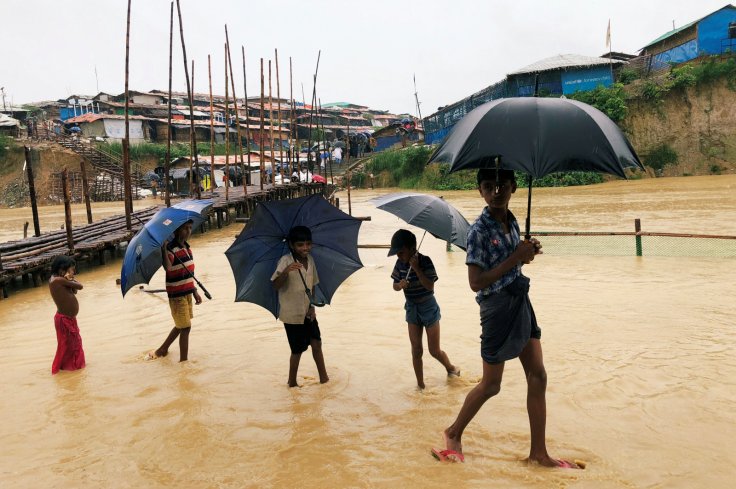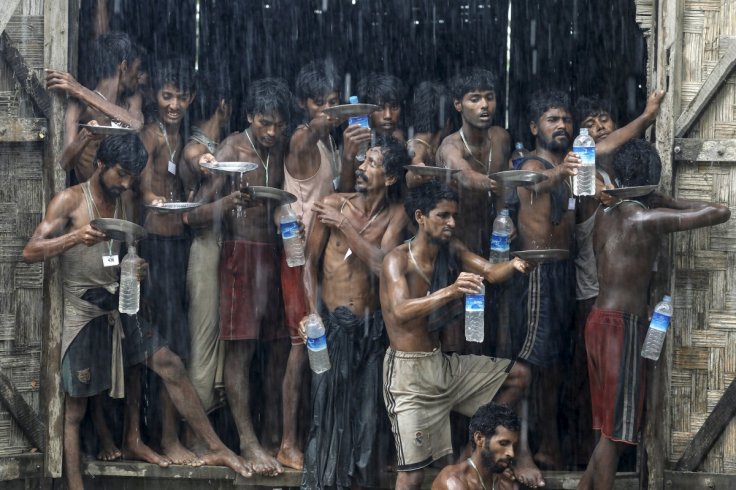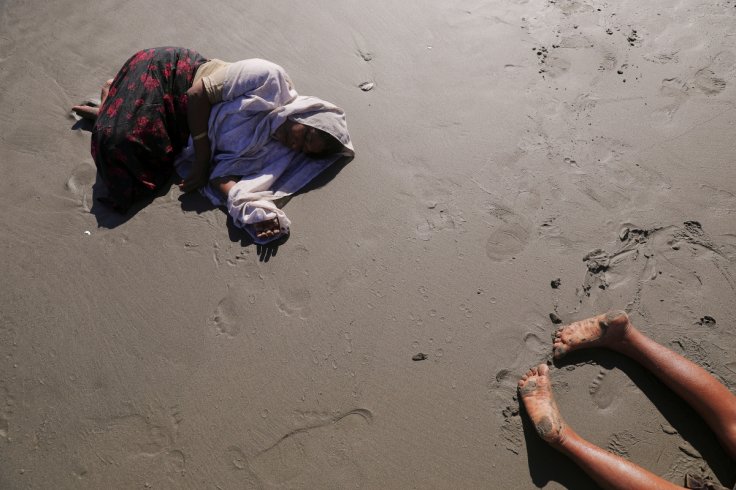Bangladesh has started putting in place a barbed wire fence around the temporary Rohingya settlements in the country, two years after the massive exodus of minority Muslims from Myanmar triggered a refugee crisis. The new restrictions on the camps in Bangladesh's Cox's Bazar district come at a time when Dhaka's handling of nearly a million refugees has attracted worldwide scrutiny.
"Our preparation is on full swing. In one camp some pillars have already been erected ... The pillars are being constructed at the cantonment. We are taking it from there to erect," Bangladeshi local media cited Army chief General Aziz Ahmed as saying. The army chief, who said he is going to visit Myanmar soon to rebuild good neighbourly relations, added that it would take some time for the fence building to be completed.

What are the new restrictions?
More than 750,000 thousand Rohingya refugees are living in the two camps at Kutupalong and Nayapara camps. The new fencing will rein in the inmates in these camps, curtailing their basic freedom of movement, human rights outfits have warned. Dhaka had earlier announced plans to install barbed wire fence in order to prevent the Rohingya refugees around the country.
Human Rights Watch said the move violates refugees' rights to freedom of movement. "While the authorities have a duty to protect camp residents, security measures should not infringe upon basic rights and humanitarian needs... The proposed measures do not meet the standards of necessity and proportionality for restricting free movement under international human rights law."
The Buddhist nationalists in Myanmar call Rohingya illegal immigrants from Bangladesh while rights organisations call them one of the world's most persecuted peoples
Who are Rohingyas?

Rohingya Muslims live in Myanmar's Rakhine state but Yangon has historically held the line that they are Illegal immigrants from Bangladesh. Myanmar's Rohingya crisis has remained unsolved for decades despite international rights agencies raising voice against their suppression in a land where they have lived for generations.
The Buddhist nationalists in Myanmar call Rohingya illegal immigrants from Bangladesh while rights organisations call them one of the world's most persecuted peoples. The 1.1 million stateless Rohingya people in Myanmar say they belong there as their predecessors have lived in the country for generations. Thousands of Rohingya people live in refugee camps, in deplorable conditions. In 2012, widespread sectarian violence had killed more than 200 people and displaced tens of thousands of Rohingya Muslims.
Kutupalong and Nayapara camps

The latest exodus of Rohingya refugees into Bangladesh happened two years ago following a fresh bout of violence in the Rakhine state. Following Rohingya-Buddhist conflict in the region, the Myanmar military intervened, resulting in what's alleged to be an ethnic cleansing campaign that led to the mass exodus of Rohingya refugees to Bangladesh. The camps in Bangladesh now house more than 750,000 refugees.
Measures imposed by Dhaka including telecommunications restrictions and movement curbs have led to skirmishes between the Rohingya and the local residents, In September, Bangladesh Home Minister Asaduzzaman Khan said fences will be built around the camps as per the directive of the prime minister to maintain law and order in the camps and ensure safety and security.









